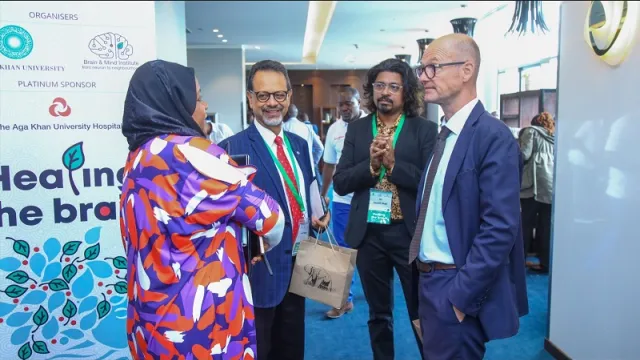Why mental health is misdiagnosed in poor countries

Why mental health is misdiagnosed in poor countries
In Africa, mental health research constitutes only two percent of all health research, despite the continent having the highest suicide rate among World Health Organization regions, with the rate for men being 40 percent higher than the global rate.
The high cost of healthcare in Africa results in patients primarily seeking physiological care, with limited attention and investment directed towards addressing mental health. Rashid Khalani, CEO of Aga Khan University Hospital, Nairobi (AKUH, N), notes that many cases go untreated, leading to misdiagnoses that expose patients to harm, perpetuating myths, and spreading misinformation.
A three-day conference in Nairobi, convened by mental health experts and neuroscientists under The Brain and Mind Institute (BMI) at Aga Khan University, aims to explore innovative solutions and strategies for promoting brain health in low- and middle-income countries (LMICs). Khalani stressed the urgent need to empower and strengthen neurohealth, citing the prevalence of misinformation, misdiagnoses, and their impact on patients' well-being and mortality.
The conference, attended by neuroscientists, researchers, medical professionals specializing in brain and mental health, and advocacy groups, seeks to transition from an institutional model to an economic model through increased funding. This funding boost is deemed essential due to challenges faced by low- and middle-income countries in securing financial support. Enhanced funding is expected to establish surveillance mechanisms to monitor mental well-being.
Read also: Will charging Uhuru park have an impact on Nairobi’s mental health
Mental disorders
According to the World Health Organization (WHO), 13 percent of the global population lives with mental disorders, with 82 percent of this burden falling on low- and middle-income countries, particularly Pakistan and Afghanistan due to political instability. Africa, with its high suicide rate, especially among the young and middle-aged population, is not exempt from this global mental health challenge.
William Torrey of Dartmouth Health explained that psychiatric illness causes disability and death, underscoring the significance of intervention compared to regular healthcare. The ongoing conference aims to address the impact of mental health and neuroscience on individuals, communities, and societies. It also seeks to tackle obstacles faced by countries in the global south, including limited access to care, insufficient research, development and funding, cultural barriers towards seeking help, and a general lack of awareness among the population.
Furthermore, the conference aims to promote collaboration among stakeholders to integrate brain health into overall health systems. Through transdisciplinary research approaches, BMI aspires to make a meaningful impact on the lives of individuals affected by debilitating neurological and mental health problems.



